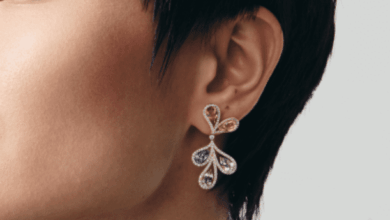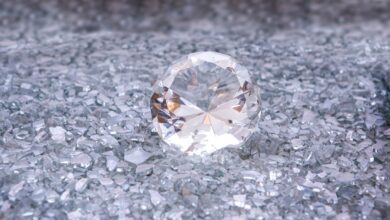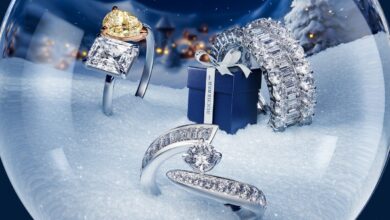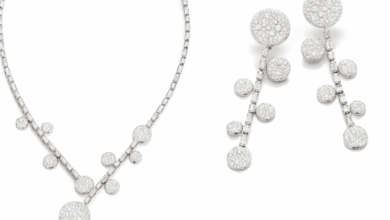The environmental impact of diamonds
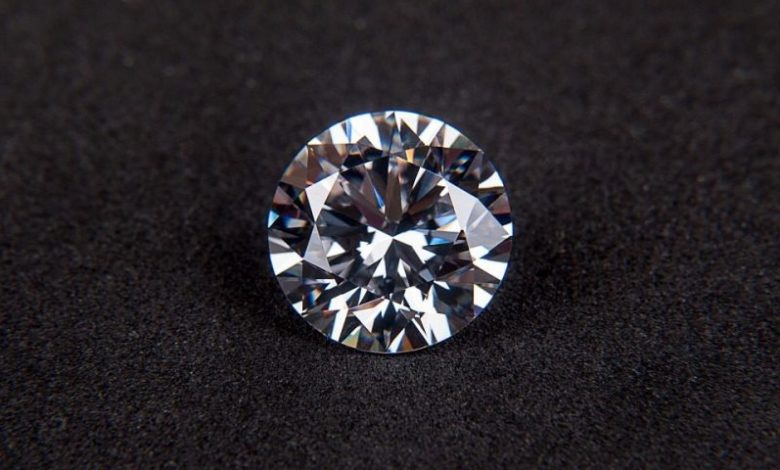
Register to get 1 free article
Reveal the article below by registering for our email newsletter.
Want unlimited access? View Plans
Already have an account? Sign in
The millennial generation is taking positive steps to fall on the right side of history when it comes to some of the most unethical, destructive or unscrupulous trends facing our planet in the 21st Century.
It appears in all kinds of guises, and is met with varying levels of scepticism of course. For every vegan there is a cry of ‘preacher’; for every global warming expert, there is a climate change denier; and for every conservationist, there is someone buying a plastic water bottle every day. However, when conjecture becomes fallout, the former are likely to be looked on favourably in decades to come.
Ethical jewellery is far from a hippy, new-wave trend. Rather, it needs to become an industry revolution and common standard.
Edward Zwick’s 2006 film, Blood Diamond shed dramatic light on the notion of conflict diamonds, human rights abuses, unsafe labour conditions and economic instability in its own Hollywood way. Far from removing yourself from this dramatised re-enactment of events in far-away lands, though, the impacts of unethical diamond production can be remedied much closer to home, and can be the next frontier in the millennial generation’s battle for sustainability.
Taking the initiative, rather than toeing the line
Being ethical shouldn’t have to be an optional add-on. The thought that goes into purchasing jewellery of any kind, and especially an engagement ring, requires a level of consideration and emotion beyond your average retail transaction.
Often, weeks or months of thought and research will go into finding the perfect gift for such a special occasion. No more significant time, price or hardship would be added by digging that little bit deeper to find out where and how the chosen ring began its journey as well.
It requires an ingrained consciousness of the situation at hand. Many prospective buyers, perhaps understandably, take information at face value. However, the unfortunate fact is that many jewellers who claim to be ethically motivated are still facilitating old-school methods that have been widely discredited by industry experts.
Essentially, consumers are being lied to about the origins and ethical backstories of their chosen jewellery, and that’s why we need to channel millennials’ renowned suspicion and critical thinking skills towards a default setting of taking the initiative, rather than toeing the line.
For such an emotional, romantic and idealistic charged purchase, the idea of tracking down unethical activities might seem like a mood-killer. In fact, it’s exactly the reason why we should be more vigilant. After all, the shopping experience is one thing, but by ignoring these facts, your symbol of affection and happiness may already be a symbol of poisoned waters, threatened natural areas, endangered communities, human rights atrocities, gender inequality, or worse.
Untainting a romantic industry
Gold mining alone displaces communities, contaminates drinking water, provides unsafe working conditions for workers, damages the environment, and, for one wedding ring alone, can generate as much as 20 tonnes of waste.
Far from being a scare tactic or a removal of romanticism, from a vantage point in the heart of the jewellery industry, it’s entirely the opposite. For ethical companies operating in the sector, we are trying to keep an industry that is so synonymous with love, romance and emotion as untainted as possible.
The best protest we can mount together is to ensure that the rings we are buying come from an ethical starting point.
In return, just as your showers instead of baths save energy, or your veganism makes you feel healthier, your ethical jewellery will be every bit as beautiful and unique as unethically sourced pieces.
It’s not a dilution of quality in the name of hippy uprisings. It’s an on-point acknowledgement that diamonds can be the next frontier for millennials, to ensure another thing is being done right in every way.
By Tim Ingle, co-founder of Ingle & Rhode


